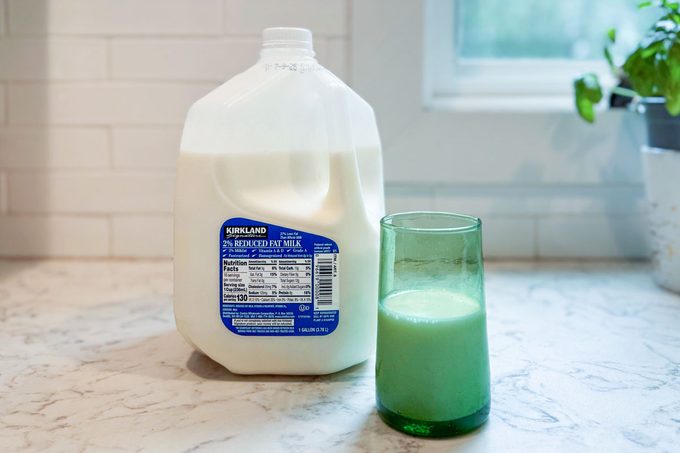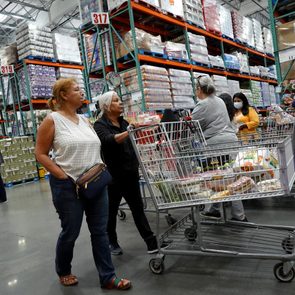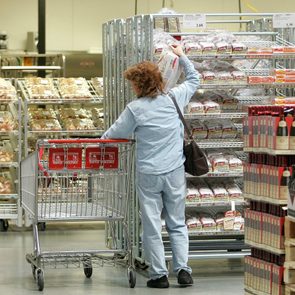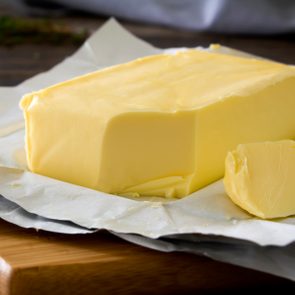It's not just about the price, quality and milk testing also factors in

Here’s Why You Should Buy Milk at Costco—Especially Right Now

When you’re weighing your grocery options around what to buy where, Costco often seems like the best choice for so many groceries because it keeps prices so low, even with uncertainty around tariffs. Since milk is a perishable refrigerator staple, you may wonder if the warehouse club is really the best place to purchase it. There’s the price to consider, of course, but have you ever tried testing Costco milk to see if the cartons at your warehouse have lengthier expiration dates than the stuff at your local market? That’s an important thing to check, especially when you’re buying in bulk.
Aside from price, you’ll be happy to hear that there are other reasons you should consider buying your dairy at Costco. We spoke to consumer savings expert Melissa Cid, food scientist Bryan Quoc Le and dairy veterinarian Michelle Schack, DVM, to get the lowdown on what you need to know.
Get Reader’s Digest‘s Read Up newsletter for more shopping news, humor, travel, tech and fun facts all week long.
How much can you save on milk at Costco?
According to Melissa Cid, consumer savings expert at MySavings.com, you can expect to save around 20 to 30% by purchasing milk at Costco compared to traditional grocery stores. “This is especially helpful for families who go through it quickly,” Cid says. “However, the savings may be smaller when compared to prices at Walmart or Target.”
She notes that organic milk, in particular, provides the most bang for your buck at Costco. “The price per gallon is lower than at most grocery stores, especially when buying Kirkland Signature Organic Whole Milk,” Cid says.
Regular 2% milk price comparisons
Prices vary from state to state and store to store. Here’s what we found when we compared prices on a one-gallon jug of 2% milk in the northeast.
- Kirkland Signature 2% Milk: $3.73
- Target Good & Gather 2% Milk: $3.89
- Walmart Great Value, 2% Reduced Fat Milk: $3.63
- Shoprite Bowl & Basket Whole Milk: $4.29
- Stop & Shop Whole Milk: $4.49
Organic 2% milk price comparisons
Again, prices vary from state to state and store to store. Here’s what we found when we compared prices on a half-gallon carton of organic 2% milk in the northeast.
- Kirkland Signature Organic 2% Reduced Fat Milk, 3-pack: $14.61 or $4.87 per carton
- Target Good & Gather Organic 2% Milk: $4.99
- Walmart Great Value Organic 2% Reduced Fat Milk: $4.92
- Shoprite Wholesome Pantry Organic Reduced Fat Milk 2% Milkfat: $4.89
- Stop & Shop Nature’s Promise Organic Vitamin D Whole Milk: $5.29
It’s important to note that if your family doesn’t go through a lot of milk every week, or you know that you won’t be able to finish 1.5 gallons of milk before its expiration date, Costco won’t be the better buy price-wise. When you factor in potential food waste, it negates any savings—one of the reasons we don’t advise buying ground beef at Costco,

What’s the No. 1 reason you should buy milk at Costco?
Interestingly enough, the number one reason you should buy milk at the warehouse club is Costco’s milk testing program. The store employs an independent third party to test its dairy products. This is important at a time when the Food and Drug Administration (FDA) is allegedly lowering testing requirements for milk and other dairy products due to a reduction in workforce, as reported by Reuters.
“Dairy companies that do their own testing tend to have their own food safety practices in place, generally meeting a higher bar for quality compared to the base level requirements by the state,” says Bryan Quoc Le, Ph.D, a food scientist.
He explains that there are two types of third-party testing for milk. One is for microbiological contamination and the other is for quality measurements.
“The first entails testing for both food-borne pathogens that can cause illness and spoilage microorganisms that can shorten the shelf-life of milk,” Le says. “(For quality measurements), these usually involve testing for chemical components that correlate to desired color, texture, taste and aroma of the milk.”
What can happen if your milk doesn’t undergo proper quality control?
“Milk that has failed quality control measures either spoils faster when it has reached the end user or runs the risk of containing pathogens,” Le says. “Quality control measures are used to determine if the pasteurization process has effectively killed off enough bacteria to ensure the milk is stable in the refrigerator by the time it arrives at the store.”
Typically, you’ll notice right away if the milk you’re drinking has spoiled, and it’s unlikely that you will get sick or experience any symptoms if you drink just a small amount, like a splash in your coffee. However, if you drink a large amount of spoiled milk, you may experience stomach cramping, vomiting or diarrhea as you would with any food-borne illness.
That said, Dr. Michelle Schack, dairy veterinarian, notes that milk is still one of the most highly regulated foods on the market.
“It is tested multiple times, starting on the farm, then at the plant, and then again at the store, so any milk being sold commercially in stores is very safe,” she says.
How long will milk from Costco last?
Schack explains that Costco’s milk, like many brands, has a longer expiration date due to ultrapasteurization, a robust cold chain management and rapid product turnover.
“While milk quality starts on the farm, how it is processed at the plant and then how it is handled at the store level makes a big difference to how long it lasts in your refrigerator,” she says. “Most milk in the U.S. goes from the farm to the store shelf in less than 48 hours.”
When isn’t it a good idea to buy milk from Costco?
The general rule of thumb here is you should not buy milk from Costco if you aren’t going to drink it before it spoils, which feels obvious, but sometimes, if you feel like you’re getting a deal, it’s hard to remember.
“Skip the larger 2- or 3-count milk packages at Costco if you’re not sure you’ll use them before the expiration date,” Cid says. “Expired milk is money down the drain.”
How to store Costco milk to make it last longer
It isn’t only about the expiration date on the carton or jug, you want your milk to taste its freshest for as long as possible.
- Store it in the back of the fridge. “Keeping milk cold is the number one thing you can do at your house to maintain that high-quality product you have come to expect,” Dr. Schack says. He advises storing it in the back of the fridge, where it’s the coldest, rather than in the door.
- Avoid cross-contamination. “Cross-contamination with utensils or cups should be minimized, as they can inoculate bacteria into the milk,” Le says. So maybe don’t go sticking spoons into the milk carton, or drink it out of the bottle or carton, for that matter. And when pouring into a cup, keep the lip of the carton or bottle away from the lip.
- Keep it covered. “Milk should remain covered and sealed until use, and only opened for a minimum amount of time to ensure fewer contaminants enter into the milk,” he adds.
- Freeze it. According to U.S. Dairy, you can freeze milk in its original container assuming it is not glass. However, because a gallon of milk takes a long time to freeze, they recommend freezing it in smaller containers, like an airtight, freezer-safe plastic container. Leave roughly an inch of space between the milk and the lid because, as a liquid, it will expand during the freezing process. According to the National Dairy Council, you can safely freeze milk for up to six months, but the quality is at its best between one and three months in the freezer.
About the experts
|
Why trust us
At Reader’s Digest, we’re committed to producing high-quality content by writers with expertise and experience in their field in consultation with relevant, qualified experts. We rely on reputable primary sources, including government and professional organizations and academic institutions as well as our writers’ personal experience where appropriate. We verify all facts and data, back them with credible sourcing, and revisit them over time to ensure they remain accurate and up to date. Read more about our team, our contributors and our editorial policies.
Sources:
- Melissa Cid, consumer savings expert for MySavings.com, email interview, June 2025
- Reuters: US FDA suspends milk quality tests amid workforce cuts
- Bryan Quoc Le, PhD, food scientist and author of the book 150 Food Science Questions Answered, email interview, June 2025
- Michelle Schack, DVM, a dairy veterinarian and animal welfare expertand co-founder of DairyKind, email interview, June 2025
- Missouri Poison Center: Spoiled Milk
- U.S. Dairy: Wondering If you Can Freeze Milk? Here’s How to Freeze Milk Safely



